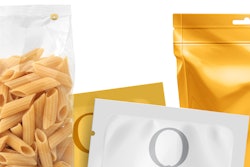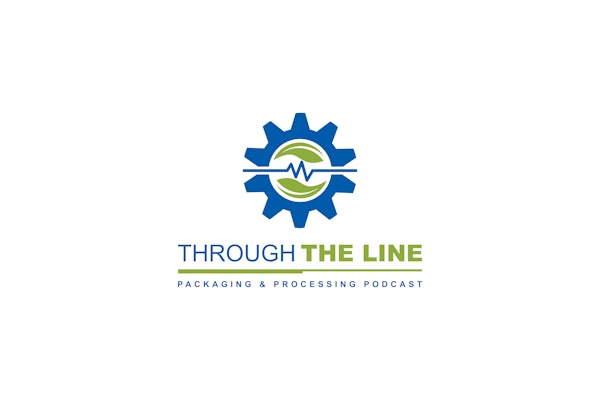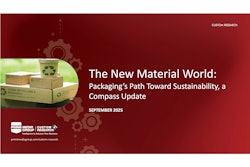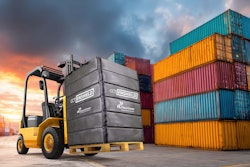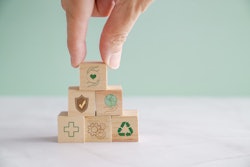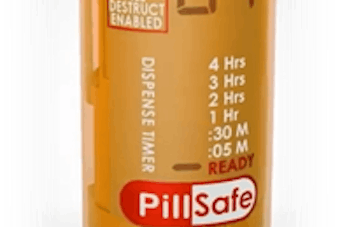Content has been edited for space considerations.
Sean Riley: Are we getting to where sustainable packaging is now actually a thing?
Jim Chrzan: I think that it started for us back in 2005 with the publication of that book Cradle to Cradle, which was pretty revolutionary.
Sean Riley: Yes.
Jim Chrzan: And it didn't necessarily touch on packaging as much as how to design a product to be reused or to be more earth-friendly. And I remember one of the stories in there, I can't remember if it was the Model A or the Model T, but Henry Ford delivered your car in a crate and you were instructed to keep the crate with you because it was going to be the floorboards of the car.
Sean Riley: That's awesome.
Jim Chrzan: That started the conversation, and in 2007 Packaging World published a field guide to sustainable packaging.
At first there was a big focus on packaging, and then people started to look at their operations in general; sending out trucks, that tires needed air, or was half a load, or they were leaving the lights on in the plant, or the water issues. And so there was a lot of good economic sense behind sustainable plants. So, the emphasis again kind of went off of packaging even to where our OEMs, members of PMMI, started releasing more energy efficient motors, or putting servos on a form fill seal machines that would produce less waste from the plastic roll. So there's a lot of good things that happened, but then the CPGs, they were paralyzed, because how do you look at everything you've been doing for decades and have to change it?
And what they finally came across with...let's do some little things and make some progress, either looking at how it's being packaged or how much packaging...what was going into things. And so, they did quite a few things like down gauging or downsizing or making pallets cubed out better.
Sean Riley: Right.
Jim Chrzan: So there's a lot of early progress. They also started a lot of new titles. I remember meeting a 'Director of Sustainovation' one time.
Sean Riley: And Walmart would have a VP of Sustainability and stuff like that.
Jim Chrzan: Yep. And you know when the titles are coming, like with E-commerce now, it's becoming a thing. But one of the problems is that a lot of the CPGs started adopting their own certification programs, and stamping labels on things, and it became super confusing to the consumer. So, we ran into some problems there, and the consumers didn't help. They didn't understand how to recycle. And surveys that said consumer sentiment was 'they'll spend 5% more or 15% more'. No one ever asked, "What has your behavior been? Have you actually spent more?"
And you know, the first e-commerce conference I ever went to, the first speaker said, "If you're in love with mother earth, you'll never order anything over your computer to be delivered at your door."
Sean Riley: Yeah, you're just adding more packaging. You're adding more waste by doing that.
Jim Chrzan: More emissions, everything. And so it's been a disconnect with the consumers. And then we got into mixed recycling being okay, and it's not okay. The grease on a pizza box doesn't go into a corrugated recycling stream, or the glue on a label on a plastic bottle made the bottle unable to be recycled anymore. So we ran into a lot of problems where that infrastructure started to crumble, and people who had started these companies to recycle things…I think this year or last year in California, more recycling facilities closed than opened.
And then what happened was the 2018 midterm elections and at the exact time that was happening, all these reports about plastics in the ocean, and plastics and fish, and microplastics, and suddenly there was this new breed of legislator and they were super aggressive catering to their millennial voters, taking on small, local, regional things like ‘if you ban water bottles at the San Francisco airport.’ Think about what that does to the supply chain.
Sean Riley: Sure.
Jim Chrzan: How many bottles were being blow molded and shipped and filled and sold. And so there's massive disruption and there is so much pending legislation now that the plastics people and the packaging people that are having their feet held to the fire because you know, like we saw in California, when the California Consumer Board decided that they were going to serialize medicine, all the pharma companies said, "Well we can't produce 20% of our drugs for California, and 80% for the rest of the country."
Sean Riley: Right.
Jim Chrzan: "We're going to have to serialize too." So if one of these states passes something like no straws on a juice box, you're not going to have any straws on any juice boxes. So there's huge implications, but packaging always takes it on the chin and you've seen not only the machinery builders, people have pumped billions of dollars into developing new or better materials or more green choices. But again, there's still confusion, particularly at the consumer level of understanding it. And a lot of people are just throwing their hands up and walking away from worrying about it.
Sean Riley: People will say that they want to be more sustainable, and they're willing to pay more to be more sustainable, and then they go into the store and the one thing is literally five cents more, but they're going to buy the thing that's five cents less. It's like sustainability has often been a ‘put your money where your mouth is’ type thing.
What is going to change or what's going to happen or what is already happening?
Jim Chrzan: One of the biggest problems here in the states is with the federal government. When you look at countries who are doing a really good job of the circular economy, it's federally mandated, and everybody recognizes exactly where everything goes.
Sean Riley: Right.
Jim Chrzan: And there's a lot of public pressure in your neighborhood.
Sean Riley: Sure.
Jim Chrzan: ‘Where's your recycled stuff on the curb’ kind of thing? And our government left it up to every state, left it up to every municipality, sporting arena, school. And there's so many different kinds of bins, and colors of bins, and the frustration at the consumer level. There is a chance now for the government to step in with some of these legislators, and try to make it more universal so people understand. And it's almost like…remember Garanimals, where your pajama tops could match your bottoms because it was the same zebra or whatever?
Sean Riley: Can't wait to see where this is going.
Jim Chrzan: Yeah, if everything had a blue ‘one’ on it and there was a blue bin.
Sean Riley: Okay, right, right, right.
Jim Chrzan: Or a yellow ‘two’ and a yellow bin, anybody would be able to recycle.
Sean Riley: Can figure it out. Right, right.
Jim Chrzan: I remember I took my son out to Seattle, Washington to look at a school and there were eight recycling bins in the cafeteria.
Sean Riley: Right.
Jim Chrzan: I couldn't even imagine starting to understand it. So the question I get all the time as the VP of Content is, "Well what is the most earth-friendly material for packaging?" and unfortunately there's no answer to that, because it all stems from life cycle analysis, and life cycle analysis like quantum physics has a lot of variable extras in the equation.
Sean Riley: Sure.
Jim Chrzan: That when glass people do it, glass wins.
Sean Riley: Right, absolutely.
Jim Chrzan: And when rigid plastic does it, rigid plastic wins. I was a huge believer in bio-plastics, corn based and sugar cane based. And then a professor from Idaho stood up at one of these conferences and said, "When you look at what it takes to grow that stuff and harvest it and process it, it doesn't necessarily make the most sense." So what we say to every CPG is "What's the product? What's the audience?" What are you trying to do…if you're selling something to people in their 60s and 70s, they're probably not going to be as susceptible to wanting to pay more money.
Sean Riley: Right.
Jim Chrzan: But young millennials buying certain products, can do it. You have a cosmetics firm, Lush who has gotten rid of packaging entirely on some of their products. And I remember a few years ago, Sainsbury in England had so much pressure on people about their packaging that they declared no packaging days, and people would walk up to the cash register with a handful of coffee beans, "What do I do with these?" They're like, "It's up to you. No packaging today." So they showed the consumers that it's not possible, but so many people have done so much in trying to get new materials going and try to come up with new ways to do it. I think the industry has responded very favorably. I may be prejudiced, but it's so easy for a consumer to say ‘packaging, it's awful.’
Sean Riley: Always.
Jim Chrzan: You know? Until you're the one who needs the medicine or needs the drink or has to buy the frozen food. And I remember one of our editorial advisory board members said, "Jim, as much as you can poke at packaging, do you realize the waste involved to the environment? If you grow it, harvest it, process it, package it, ship it, and then it doesn't get consumed because it spoiled." And that's, I think, a message that we have to be stronger about telling outside the industry.
Sean Riley: That's an amazing point. I hadn't really even thought of it that way. I know that you often use as an example when you see a tornado or a hurricane or something like that, that you'll see the trucks unloading the cases of bottled water.
Jim Chrzan: Bottled water, saving lives.
Sean Riley: If there wasn't any, if the water supply gets shut down, how else are you going to get that water to them other than via that stream. So I guess any other final thoughts that we haven't hit on?
Jim Chrzan: Yes, just that there's no 100% magic bullet. Everybody's got to look at their product and the availability of how to keep it fresh and tasty and good looking and decide what package is best for them. And I really think it's going to take more of this legislation to put pressure on the consumer to say, "This is where this goes, this is where you should put this." And then, you have a lot of corporations setting very ambitious goals about recycled content or carbon emissions and the goals were at first for 2010, then they became for 2015, now they're 2025. And they realize that they don't even have enough content in the stream to meet their recyclable goals. So it's going to take a bigger effort than just the packaging industry is making. But I do always take exception when people just blame plastic and packaging.
Sean Riley: Sure.
Jim Chrzan: And everybody's got a role in to making it.
Sean Riley: It's understandable and it is something as we've seen in European countries that do a much better job of this, it does. It comes down from a government level. And they have to adhere to it.
Jim Chrzan: Yep. The awareness. And you know, it's great all the freedoms we have here in America, but I think we have to take a look at treating the country better and the environment matters.
Listen to the full podcast here.
See UnPACKed with PMMI PACK EXPO East Rewind Series here.
Make plans to visit PACK EXPO International in Chicago, November 8-11, to see on-trend processing and packaging machinery and materials.





